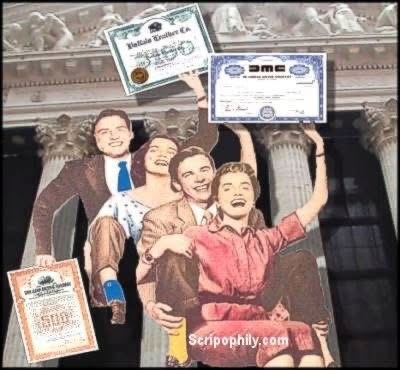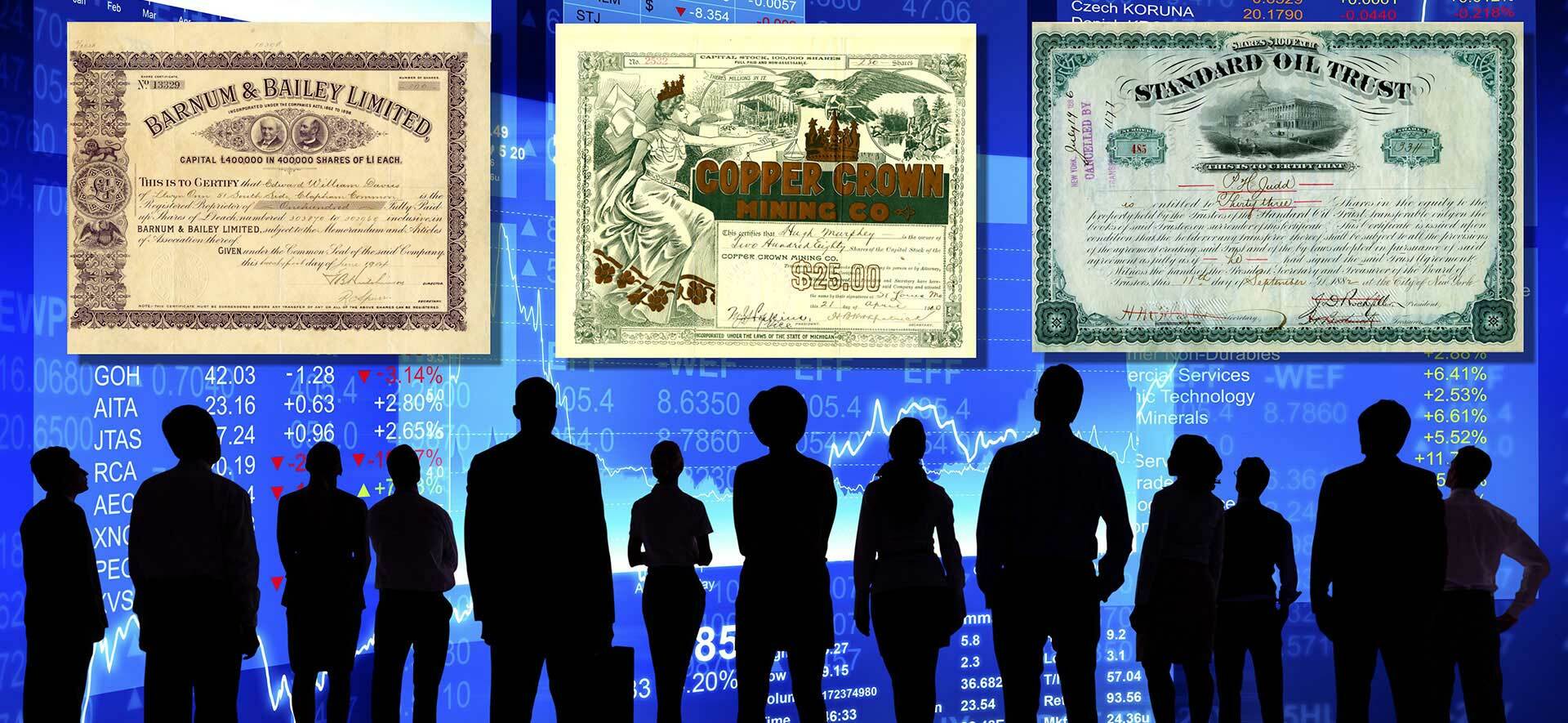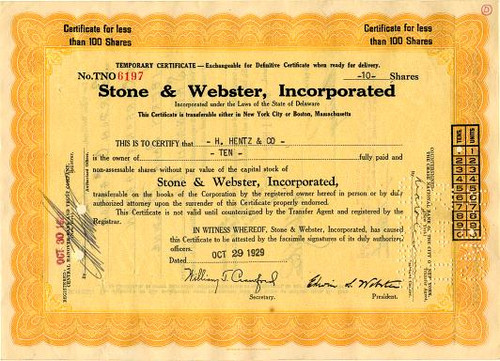Beautifully engraved certificate from the Stone & Webster, Incorporated issued in 1929 to William S Paley. This historic document was printed by American Bank Note and has an ornate border around it with a vignette of the company's name. This item has the printed signatures of the Company's President and Secretary and is over 81 years old. The certificate was issued to William S. Paley and handsigned by him on an attached certificate assignment form. 

Paley's Signature on Assignment Form William Paley: 1901-1990 He was the unrivalled godfather of American broadcasting, a visionary who steered the development of radio and ushered in the medium of television. Fabulously wealthy and notoriously despotic, William Samuel Paley bought CBS in 1929, building it from a failing network of 22 radio stations into a vast broadcast empire with hundreds of radio and television affiliates, and with sidelines including records, publishing and children's toys. Almost until he died from a heart attack last week at 89, the imposing CBS Inc. patriarch remained involved in the company's operations, serving as chairman and maintaining an office at its Manhattan headquarters, known as Black Rock. And over the years, he kept a close eye on all areas of CBS's broadcast division, paying as much attention to programming as to business. Said CBS news anchorman Dan Rather, after learning of Paley's death: "He was a giant of 20th-century business, a man committed to excellence." In the early years of TV, Paley was responsible for introducing such figures as Lucille Ball and Ed Sullivan to the medium, and he recruited artists like Jack Benny and Jackie Gleason from other networks. He went on to acquire a reputation for uncanny programming instincts. Against the advice of some network executives, he supported such innovative programs as All in the Family and M*A*S*H, which became critical and popular successes. Meanwhile, he was keenly interested in CBS's news coverage, bringing Walter Cronkite and famed Second World War correspondent Edward R. Murrow to the network, and later helping to launch 60 Minutes. Rather recalls that when he returned recently from the Persian Gulf, Paley called him in for a firsthand account. Said the anchorman: "He remained passionately interested in news up to the time of his death." Born in Chicago, Paley was the son of successful cigar merchant Samuel Paley, a Russian Jewish immigrant, who made his son a vice-president of the company after Warn had completed studies at the University of Pennsylvania's Wharton School of Finance in 1922. The young cigar executive became interested in broadcasting after the company bought some advertising time on a Philadelphia radio station, one of 16 in the United Independent Broadcasters Network, later known as CBS. Although the chain was losing money, Paley bought it for about $400,000 in 1929. While making the radio network profitable, Paley introduced such figures as Bing Crosby, Kate Smith and Frank Sinatra to the airwaves, helping to launch their careers. In the embryonic years of television, when skeptics were denouncing the new medium as a passing fad, Paley decided to commit CBS to the small screen. "My imagination went wild contemplating the possibilities of it," he recalled much later. CBS launched regular TV broadcasts in 1939. By 1950, it had emerged as the leader among the Big Three American networks in both ratings and revenues, a position that it held for the following 2 1/2 decades-in the mid-1970s, it lost out to ABC and has not since managed to recover its pre-eminence. Paley had difficulty relinquishing control of CBS. He retired as chief executive officer in 1977, but remained as chairman. He fired three potential successors before bringing in Thomas Wyman as president in 1980 and making him chairman in 1983. Then, unhappy with Wyman's performance, Paley orchestrated his own return to the post in 1986, hoping to help sharpen the network's competitive edge and restore its sagging reputation for news coverage. Paley was an intensely private man with patrician tastes -- he brought five classical-music concerts to radio, and his CBS office was decorated with paintings by masters including Pablo Picasso and Jackson Pollock. Forbes magazine has included him in its list of the 400 richest Americans. In the 1980s, his wealth was estimated to be in excess of $350 million. After divorcing in 1947 his first wife, socialite Dorothy Hart Hearst, with whom he adopted his first two children, he wed Barbara (Babe) Cushing Mortimer four days later. He and his beautiful second wife, with whom he had two children, were prominent figures in New York City's high society until she died in 1978. Macleans, Nov 5, 1990 v103 n45 p58(1)


Paley's Signature on Assignment Form










